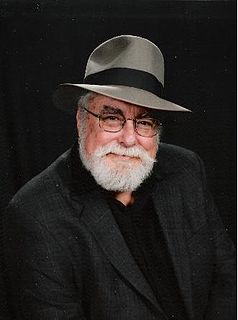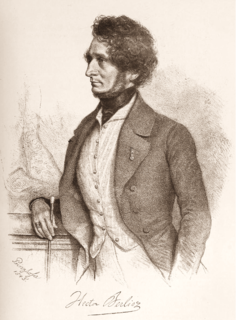A Quote by John Updike
My father provided; he gathered things to himself and let them fall upon the world; my clothes, my food, my luxurious hopes had fallen to me from him, and for the first time his death seemed, even at its immense stellar remove of impossibility, a grave and dreadful threat.
Related Quotes
Our Savior was crucified for our sakes that by His death He might give us life and train and attract us all to endurance. To Him I press on, and to the Father and to the Holy Spirit. I strive to be found true, judging myself unworthy of this world's goods; and yet not I because of the world, but the world because of me. Think of all these things in your heart; follow them with zeal; fight, as you have been commanded, for the truth to the death: For Christ was made 'obedient' even 'to death'
William 'Big Bill' Rockefeller, who sold cancer 'cures' from a medicine wagon, taught him to leap into his arms from a tall chair. One time his father held his arms out to catch him but pulled them away as little John jumped. The fallen son was told sternly, 'Remember, never trust anyone completely, not even me.'
When a child first catches adults out -- when it first walks into his grave little head that adults do not always have divine intelligence, that their judgments are not always wise, their thinking true, their sentences just -- his world falls into panic desolation. The gods are fallen and all safety gone. And there is one sure thing about the fall of gods: they do not fall a little; they crash and shatter or sink deeply into green muck. It is a tedious job to build them up again; they never quite shine. And the child's world is never quite whole again. It is an aching kind of growing.
The day my father died seemed longer than my entire childhood. The day I felt my first success seemed fleeting, hour-long, not long enough perhaps. I wondered where it went. Even the cycle of time confounds me. I work till dark, until sunrise on most days and fall asleep as the world awakens to light. My friends call me an owl. I like to think of myself as Batman – the prince of darkness.
It is the duty of any president, in the final analysis, to defend this nation and dispel the security threat. Saddam Hussein has brought military action upon himself by refusing for 12 years to comply with the mandates of the United Nations. The brave and capable men and women of our armed forces and those who are with us will quickly, I know, remove him once and for all as a threat to his neighbors, to the world, and to his own people, and I support their doing so.
So to be sick unto death is, not to be able to die-yet not as though there were hope of life; no, the hopelessness in this case is that even the last hope, death, is not available. When death is the greatest danger, one hopes for life; but when one becomes acquainted with an even more dreadful danger, one hopes for death. So when the danger is so great that death has become one's hope, despair is the disconsolateness of not being able to die.
It is difficult to put into words what I suffered-the longing that seemed to be tearing my heart out by the roots, the dreadful sense of being alone in an empty universe, the agonies that thrilled through me as if the blood were running ice-cold through my veins, the disgust with living, the impossibility of dying. Shakespeare himself never described this torture; but he counts it, in Hamlet, among the terrible of all the evils of existence. I had stopped composing; my mind seemed to become feebler as my feelings grew more intense. I did nothing. One power was left to me-to suffer.
At that instant he knew that all his doubts, even the impossibility of believing with his reason, of which he was aware in himself, did not in the least hinder his turning to God. All of that now floated out of his soul like dust. To whom was he to turn if not to Him in whose hands he felt himself, his soul, and his love?
And still Meriadoc the hobbit stood there blinking through his tears, and no one spoke to him, indeed none seemed to heed him. He brushed away the tears, and stooped to pick up the green shield that Eowyn had given him, and he slung it at his back. Then he looked for his sword that he had let fall; for even as he struck his blow his arm was numbed, and now he could only use his left hand.
and even when I was broken the way sometimes one can be broken, and even though I had fallen, I found upon arising that I was stronger than before, that the glories, if I may call them that, which I had loved so much and that had been darkened in my fall, were shinning even brighter and nearly everytime subsequently I have fallen and darkness has come over me, they have obstinately arisen, not as they were, but brighter.
When Christ was about to leave the world, He made His will. His soul He committed to His father; His body He bequeathed to Joseph to be decently interred; His clothes fell to the soldiers; His mother He left to the care of John; but what should He leave to His poor disciples that had left all for Him? Silver and gold He had none; but He left them that which was infinitely better, His peace.
She couldn't think of anyone else who remotely resembled him. He was complicated, almost contradictory in so many ways, yet simple, a strangely erotic combination. On the surface he was a country boy, home from war, and he probably saw himself in those terms. Yet there was so much more to him. Perhaps it was the poetry that made him different, or perhaps it was the values his father had instilled in him, growing up. Either way, he seemed to savor life more fully than others appeared to, and that was what had first attracted her to him.
When the father dies, he writes, the son becomes his own father and his own son. He looks at is son and sees himself in the face of the boy. He imagines what the boy sees when he looks at him and finds himself becoming his own father. Inexplicably, he is moved by this. It is not just the sight of the boy that moves him, not even the thought of standing inside his father, but what he sees in the boy of his own vanished past. It is a nostalgia for his own life that he feels, perhaps, a memory of his own boyhood as a son to his father.





































